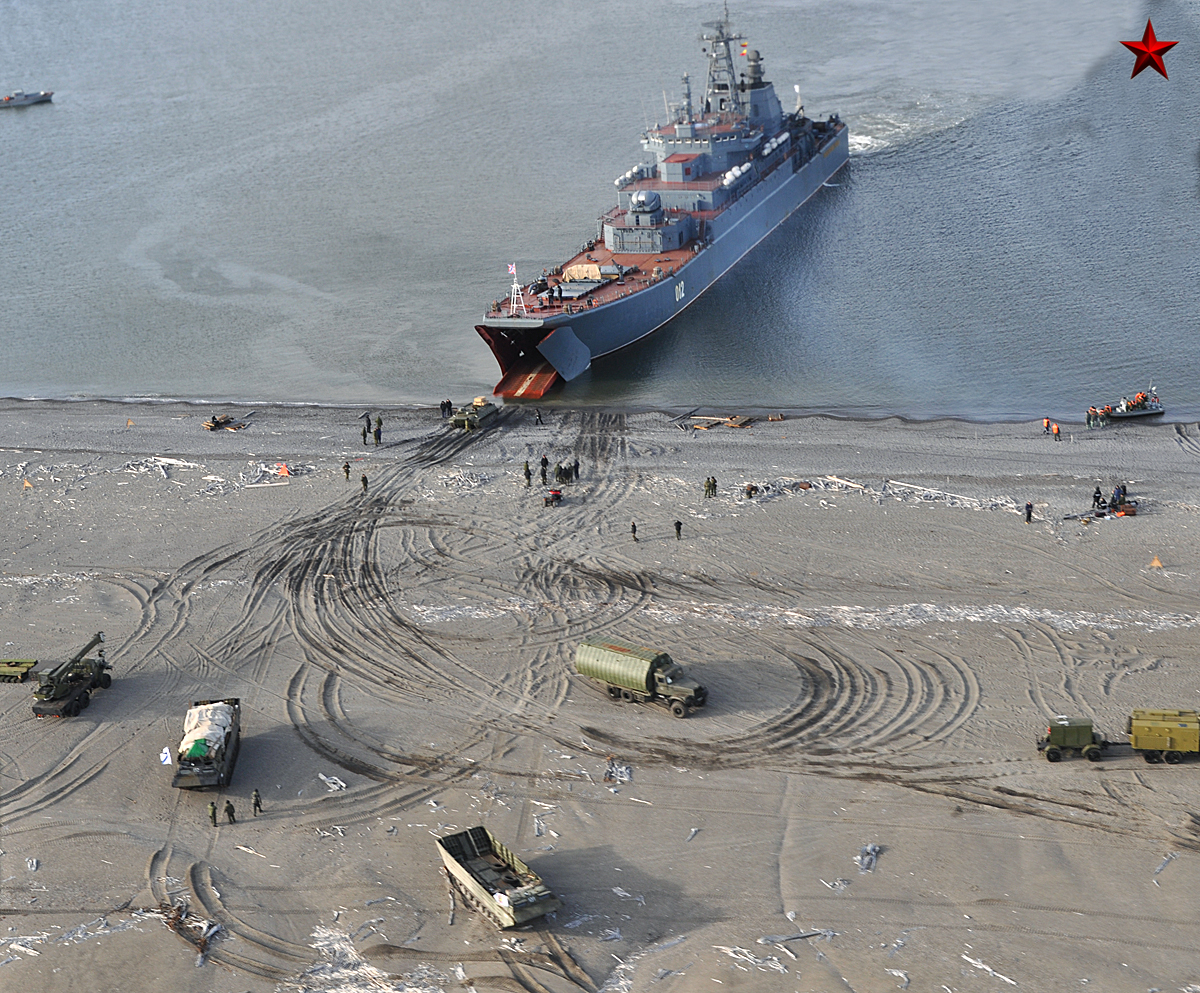
A new base is under construction in great haste.
Rather uncharacteristically, President Vladimir Putin did not mention the Arctic at all at the meeting of the Russian Georgraphic Society (he made himself the chairman of its board five years ago) – or at the gathering of the Russian Popular Front (mobilization against Western sanctions was the main theme). On the background of this lack of attention, the news about the nearly-finialized plan for building a new ministry for the Arctic looks rather odd (Kommersant, November 20). Indeed, more bureaucracy makes sense if there is more money and resources to distribute – and it is definitely not the case here. Many Russian experts argue that this plan is linked with the initiative for cancelling direct elections of governors in three Northern regions (Nenetsk, Yamal-Nenetsk, and Khanty-Mansiysk), which proves the desire to strengethen central control, justified – as in Soviet times – by the tense international situation. Such centralization brings no positive impact for international cooperation; indeed, the key achievement of the Canadian chairmanship in the Arctic Council this year is that the work continued with a major breakdown – and without any results either. It is hard to expect any results when the main direction of Russian policy in the Arctic region is militarization, as exemplified, for instace, by the deployment of three surfact-to-air Panzir systems on the newly-build base on the Kotelny island. It remains to be seen, whether the Bulava missile test schedule for late November from the Alexander Nevsky submarine would be successful (the track record is not great), but the massive costs of nuclear modernization look increasingly unsustainable in the situation of fast-deepening economic recession. The news about a possible revival of the anti-satellite program (frozen since the last years of the Cold War) might be off-target, but they fit well with the news about missile tests and live-fire exercises by the Northern Fleet.




Leave a Reply